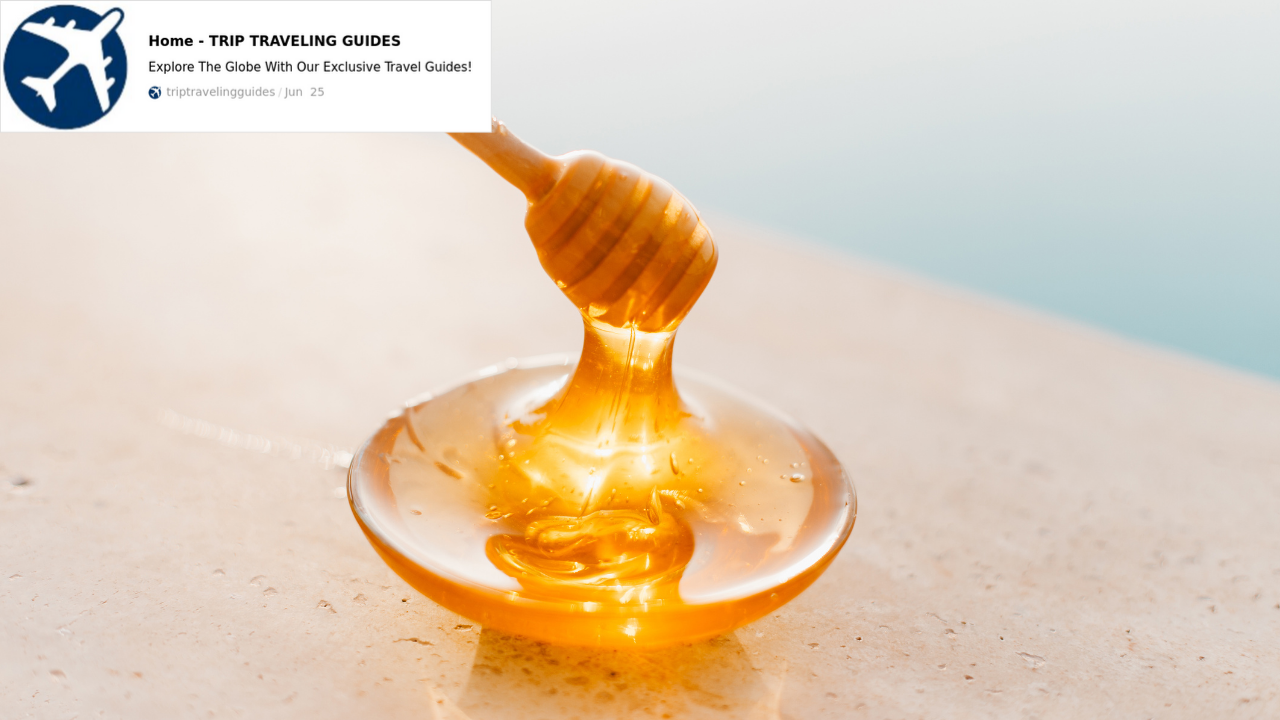Honey, often referred to as liquid gold, is more than just a sweetener; it’s a treasure trove of health benefits, culinary uses, and cultural significance. Derived from the diligent work of bees, honey is a staple that has transcended generations as a symbol of wellness and vitality. In this comprehensive article, we will delve deep into the origins, benefits, types, and versatile uses of honey, making it clear why it stands out as one of nature’s most remarkable creations.
What is Honey? An Overview of Its Origin and Composition
Honey is a natural sweet substance produced by bees from the nectar of flowers. After collecting nectar, bees transform it by combining it with enzymes in their bodies, storing it in wax honeycombs within their hives. This process results in a thick, sweet liquid that is rich in nutrients and antioxidants.
Key Components of Honey
- Natural Sugars: Glucose and fructose dominate its composition, making up nearly 80% of honey.
- Water Content: Around 17-18%, which helps in maintaining its liquid state.
- Minerals and Vitamins: Honey contains potassium, calcium, iron, and trace amounts of vitamin C and B vitamins.
- Enzymes: essential for honey’s antibacterial and antioxidant properties.
- Flavonoids and phenolic Acids: responsible for its antioxidant power.
Health Benefits of Honey: Why It’s Good for You
1. A Natural Energy Booster
Honey is a quick source of energy due to its high natural sugar content. The glucose is rapidly absorbed, providing an instant energy kick, while fructose sustains energy release over time. This makes it an excellent pre- or post-workout supplement.
2. Antioxidant Properties
The antioxidants in honey, such as flavonoids, help combat oxidative stress, reducing the risk of chronic diseases like heart disease and certain cancers. Darker varieties of honey, such as buckwheat honey, tend to have a higher antioxidant content.
3. Supports Wound Healing
Historically, honey has been used as a natural wound healer. Its antibacterial properties, combined with its ability to maintain a moist environment, make it effective for treating minor burns, cuts, and abrasions.
4. Soothes Coughs and Sore Throats
Honey acts as a natural cough suppressant and throat soothe. Its viscous consistency coats the throat, providing relief and reducing irritation.
5. Improves Digestive Health
Honey can aid digestion by promoting the growth of good bacteria in the gut. Consuming raw honey is particularly beneficial for balancing gut flora and combating conditions like gastritis.
6. Skin Care Benefits
Honey is a popular ingredient in skincare due to its moisturizing and antimicrobial properties. It is often used in face masks, scrubs, and creams to hydrate skin and fight acne.
Types of Honey and Their Unique Characteristics
Not all honey is created equal. The type of honey depends on the flower source and the region of production, leading to variations in flavor, color, and nutritional content.
1. Clover Honey
- Taste: Mild and sweet.
- Uses: Ideal for teas, dressings, and baking.
2. Manuka Honey
- Origin: New Zealand.
- Special Features: High antibacterial activity due to methylglyoxal.
- Uses: medicinal purposes, such as wound care and immune support.
3. Buckwheat Honey
- Color: dark and rich.
- Taste: Strong and malty.
- Benefits: High in antioxidants.
4. Acacia Honey
- Color: light and clear.
- Taste: delicate floral flavor.
- Special Features: Stays liquid for longer periods.
5. Wildflower Honey
- Source: A mix of various flowers.
- Taste: complex and varied depending on the season.
- Uses: Everyday sweetener.
Culinary Uses of Honey: A Versatile Ingredient
1. Sweetener for Beverages
Honey is a natural alternative to refined sugar in tea, coffee, and smoothies. Its complex flavors add depth to beverages without overpowering them.
2. Baking and Cooking
Honey acts as a natural moisturizer in baked goods, keeping them moist for longer. It can be used in bread, cakes, and muffins as a sugar substitute. Additionally, honey caramelizes beautifully, making it ideal for glazing vegetables, meats, and desserts.
3. Salad Dressings and Marinades
Mixing honey with vinegar, mustard, or olive oil creates delicious salad dressings. It also works as a tenderizer in marinades, especially for chicken and pork.
4. Drizzling and Dipping
Drizzle honey over pancakes, waffles, or yogurt for a touch of sweetness. Pair it with cheese for a gourmet appetizer.
How to Store and Use Honey
Proper Storage
- Keep honey in a tightly sealed container at room temperature.
- Avoid exposing it to direct sunlight or extreme heat, as this can degrade its quality.
How to Use Crystallized Honey
If your honey crystallizes, don’t worry—it’s a natural process. To restore its liquid state, simply place the jar in warm water and stir gently.
The Environmental Importance of Honey Bees
Beyond producing honey, bees play a critical role in pollination, supporting biodiversity and the global food supply. Without bees, crops like almonds, apples, and blueberries would suffer, emphasizing the need for bee conservation.
Frequently Asked Questions About Honey
1. Is honey healthier than sugar?
Yes, honey is more nutrient-dense than refined sugar. It contains trace minerals and antioxidants, whereas sugar is purely empty calories.
2. Can Diabetics Eat Honey?
While honey has a lower glycemic index than sugar, diabetics should consume it in moderation and consult their healthcare provider.
3. What Is Raw Honey?
Raw honey is unprocessed and unpasteurized, retaining all its natural enzymes, nutrients, and antibacterial properties.
4. Is honey safe for babies?
Honey should not be given to infants under one year due to the risk of botulism.
Honey is truly one of nature’s most versatile and beneficial gifts. Whether you’re using it as a natural sweetener, a health remedy, or a skincare staple, the advantages of incorporating honey into your daily routine are undeniable. From its myriad types to its numerous health benefits, honey stands as an essential part of both traditional and modern wellness.




